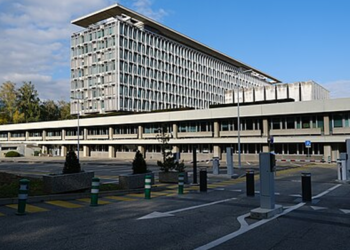The Senior Special Assistant to the President on Sustainable Development Goals, Princess Adejoke Orelope-Adefulire, has called for concerted efforts to provide better care for patients with Sickle Cell Disease in the country. She noted that with Sickle Cell contributing to approximately 376,000 under-5 deaths annually, compared to 34,400 deaths from other causes, there is a pressing need for stakeholders to intensify efforts to reverse the trend.
The Presidential Adviser made this call in a statement issued by her Media Aide, Desmond Utomwen, to commemorate World Sickle Cell Day, with the theme: “Hope Through Progress: Advancing Sickle Cell Care Globally.” World Sickle Cell Day is observed on June 19 every year. It is an annual event aimed at raising awareness about sickle cell disease globally.
According to Princess Orelope-Adefulire, a Lancet Haematology publication in August 2023 revealed that globally, between 2000 and 2021, the rate of children born with sickle cell disease increased by 13.7 percent, reaching an average of up to 515,000 babies per annum. The study also found that sickle cell-specific under-5 mortality was 11 times higher than deaths due to other causes, amounting to approximately 376,000 deaths from sickle cell disease annually compared to 34,400 deaths from other causes. She added that in Nigeria, approximately one in four, or 25 percent, of Nigerians carries a sickle cell gene, meaning about 50 million people can transmit the gene to their children. “We must act now to reverse this trend,” she stated.
Princess Orelope-Adefulire further noted that the OSSAP-SDGs has demonstrated commitment by delivering a fully equipped, state-of-the-art Sickle Cell Care Centre at the Lagos State University Teaching Hospital (LASUTH). She expressed confidence that the Sickle Cell Centre, which was recently commissioned by Lagos State Governor Babajide Sanwo-Olu and other related interventions by OSSAP-SDGs, will contribute to achieving SDG 3.2 on “reducing under-five mortality to 25 per 1,000 live births or less by 2030” as well as other cross-cutting SDGs. This aligns with the cardinal pillars on healthcare and empowerment in the Renewed Hope Agenda of the current administration.











